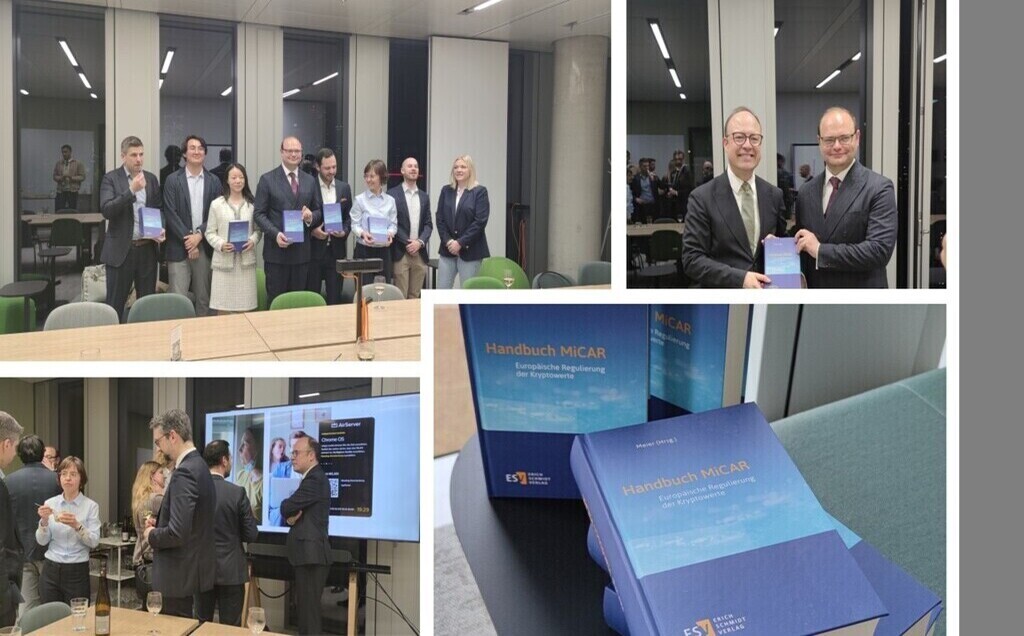The execution of token sales has been a strictly regulated undertaking in the European Union since the Markets in Crypto Assets Regulation (MiCAR) came into force. Issuers must prepare and publish a detailed crypto asset white paper before the token sale begins. They must also comply with regulatory requirements regarding how they market the crypto assets, how they deal with conflicts of interest, and the security of the systems and protocols they use. If the crypto assets offered by the issuer are asset-referenced tokens (ART) or e-money tokens (EMT), additional regulatory obligations apply. In contrast, issuers are relatively free to design the token terms underlying the crypto assets to be offered. Token terms can be used to link the ownership of crypto assets to a wide variety of rights. As utility tokens, they can grant their holders access rights to the issuer’s goods or services, embody access to information, voting or election rights, tokenize redemption rights in the underlying fiat currency in the case of ART or EMT, or be linked to other rights. MiCAR does set out basic requirements for the underlying contracts for certain types of crypto assets. However, the specific rights and obligations of token holders and issuers can be agreed upon in accordance with the applicable national private law. But are there limits that issuers must observe when determining the private law applicable to token terms?
In Principle, there is a Free Choice of Law under Article 6 of the Rome-I-Regulation
Firstly, the principle of free choice of law arising from Article 3 of the Rome-I-Regulation also applies to the creation of token terms. According to this principle, issuers of crypto assets are free to decide which law should apply to the contract with the purchasers of crypto assets when drafting their token terms. However, in the case of the offering of crypto assets to private purchasers, this principle applies only to a limited extent. This is because, according to Article 6(2) of the Rome-I-Regulation, a choice of law under Article 3 of the Rome-I-Regulation may not result in a consumer having weaker rights than if the law of his home country or the country in which he is habitually resident were applicable. The provision is intended to ensure that consumers in the European Union can always rely on the consumer protection rights they enjoy in their everyday lives in their country of habitual residence. In the area of token sales aimed at private purchasers, this would mean that private purchasers could potentially assert different consumer rights against the issuer in the context of a token sale, depending on their country of habitual residence. This result would be impractical and would run contra to the principle of equal treatment of all purchasers in a particular issue. In this context, the question arises as to whether the Rome I Regulation provides for an applicable exception for token sales to private purchasers.
In the Case of Public Offers of Financial Instruments, the Consumer Protection Privilege of Article 6(2) of the Rome-I-Regulation Does Not Apply
The question arises as to whether the exception in Article 6(4)(d) of the Rome-I-Regulation can also apply to crypto assets and contractual terms governing the issuance and public offering of crypto assets. According to the wording of the provision refers exclusively to financial instruments which, under EU law, are generally only instruments within the meaning of Article 4(15) of the EU Regulation on markets in financial instruments (MiFID2). The exception therefore applies in particular to transferable securities, units of investment funds, derivatives, or similar products. According to the alternative relationship between MiCAR and MiFID2 expressly provided for in Article 2(4)(a) MiCAR, crypto assets are not financial instruments. However, there are good arguments in favor of applying the exception in Art. 6(4) of the Rome-I-Regulation by analogy, as the interests of issuers and purchasers are comparable in the case of token sales of uniformly structured crypto assets. The European regulator appears to have simply overlooked the problem of consumer protection privileges for token sale participants with consumer status when MiCAR was introduced, so that this is likely to be an unintended regulatory gap. However, Article 6(4) provides for an exception for contracts for financial services. This makes sense because financial services only relate to a financial instrument and do not specify the specific rights and obligations arising from it. Since a comparison with the area of crypto assets can also be affirmed in this respect, the exception should also apply mutatis mutandis to downstream services – in this case, crypto asset service listings within the meaning of Article 3(1)(16) MiCAR.
Attorney Dr. Lutz Auffenberg, LL.M. (London)
subscribe to Newsletter






